What Emotions You Can Expect After Bariatric Surgery
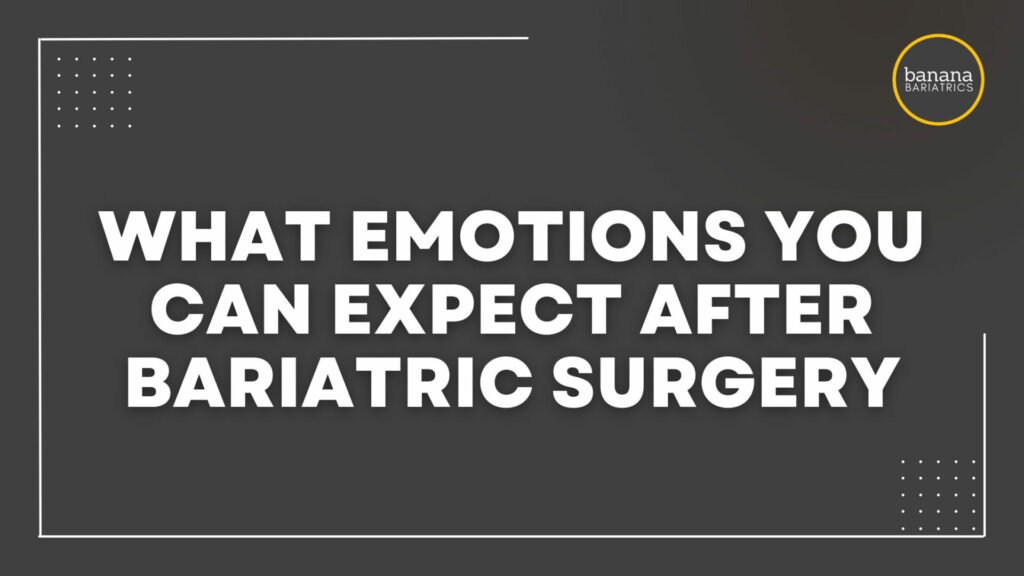
If you’re fresh out of surgery, it’s not uncommon to feel like your emotions are scrambled ALL over the place. The first few months after surgery can feel like an emotional rollercoaster, and it is actually quite common in some post-operative patients. In this week’s blog post, we are going to set some expectations about what emotions you can expect after bariatric surgery.
Why You May Feel Emotional After Bariatric Surgery
Typically, the first few months after surgery can trigger feelings of emotional instability in some bariatric patients due to a combination of being in a calorie deficit and also the recalibration of your hormones from the “trauma” and stress of having a major surgery.
Preceding surgery, you were likely on a liver shrink diet in order to reduce the size of your liver in preparation for a safer surgery. Then, after surgery, your diet was gradually advanced through the different bariatric stages over the following 6+ weeks until you felt comfortable eating a regular (hard and crunchy) diet again.
Together, that’s almost 2 months of being in a calorie deficit (likely consuming < 1000 calories / day)!
On top of this, your stomach has been significantly reduced (> 75% in volume) and your intestines may or may not have been rerouted. All of these can affect how your hormones are regulated and the communication they have between your brain and your gut.
Additionally, with rapid weight loss, fat cells begin to release the hormone estrogen, now flooding your bloodstream with a higher dose of this hormone. This is sometimes why menstruating women in the early phases after surgery may have break-through periods and/or irregularity to their menses. Weight loss also increases ones fertility after surgery as well!
What Are The Emotions After Surgery
While your happy and bubbly personality may be replaced with feelings of being down, depressed, and even wanting to hurt yourself- these are often transient and will improve with time. However, ***If you begin having thoughts of wanting to hurt yourself and/or have had thoughts of committing suicide, you MUST seek psychiatric help immediately. This is NOT normal and should NOT be ignored.
Especially in the first few months after surgery, you may begin having feelings of regret for having the surgery in the first place. As much as this is a nutritional re-haul on your lifestyle, it is also a mindset re-haul. Surgery forces you to take a different look at food. Some patients say that food becomes more of a source of fuel for their body, instead of an emotional crutch.
It may feel like you’re going through a break-up with food. The bite or two of cake, ice cream, and/or cookie may now leave you in the fetal position in your bed feeling absolutely miserable and having you ask yourself; “What was I thinking?? I KNEW that was going to be a bad idea.”
When food used to be the emotional crutch after a long and stressful day of work or with the kids… it now is no longer a safe option. Eating too quickly, too much, or the wrong foods can cause nausea, vomiting, abdominal pain, and immediate trips to the bathroom. Not the happiest of experiences anymore when it once played a role at de-escalating your stress.
When To Expect Your Emotions To Stabilize
By post-operative months 2-3, once you’re on a more regular diet and you’re through the toughest part of post-operative recovery, most patients begin to start feeling much more emotionally stable. Ensuring you are consuming at least 60g of protein daily, drinking 64oz of water, taking your bariatric vitamin regimen every single day, and having a supportive bariatric psychologist on board will make all of the difference in feeling emotionally back on track in a shorter period of time.
With all of this said, there is hope of happiness after surgery! The majority of patients (when I see them in my clinic around 6 months after surgery) are absolutely thrilled with their results and have made it through the toughest part. They have seen the light at the end of the tunnel and have adjusted to their new bariatric lifestyle using their tool appropriately.
In Summary
If you are preparing for surgery or are freshly post-op and are unsure of what emotions to expect after bariatric surgery, know this: it is common to feel a bit emotionally unsteady for the first few months after surgery. This is typically due to being in an extended calorie deficit and for the recalibration time that your body needs to stabilize your hormones. However, there is hope! And most patients come out the other side beyond grateful that they went through this journey. They have a brand new life and are living the dream they have always imagined having!
If you are in the early phases of surgery and are struggling to increase your calories and to master the bariatric basic eating guidelines, we encourage you to download our FREE protein resource! With emphasis on whole food sources of protein, and assuming you are on a regular bariatric staged diet, this downloadable protein resource will help you:
- Identify high protein sources from nutrient dense foods
- Understand the exact protein amounts per serving from every food group
- Create easy “grab-and-go” high protein snacks
- Make grocery shopping seamless, with a printable shopping list


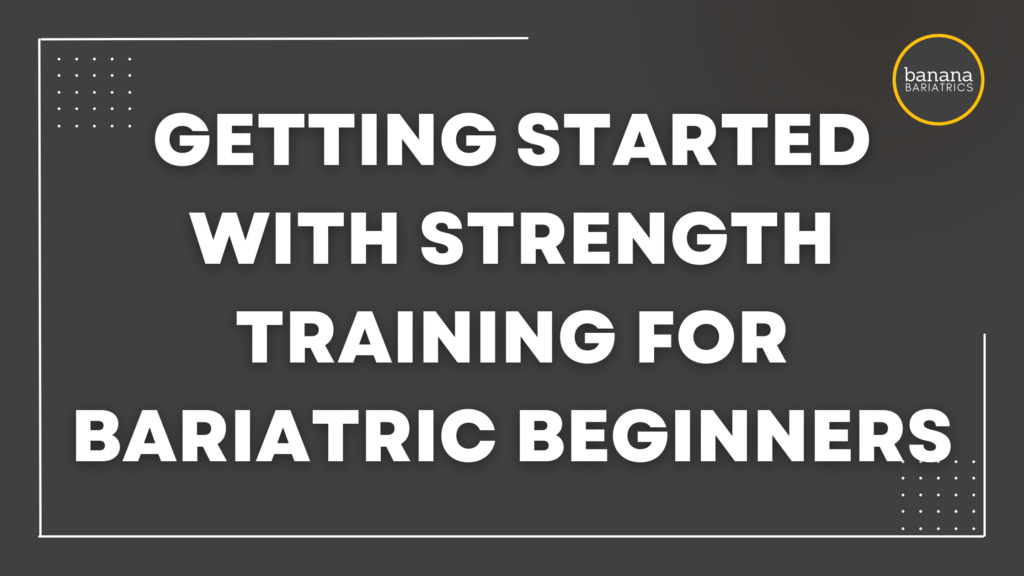
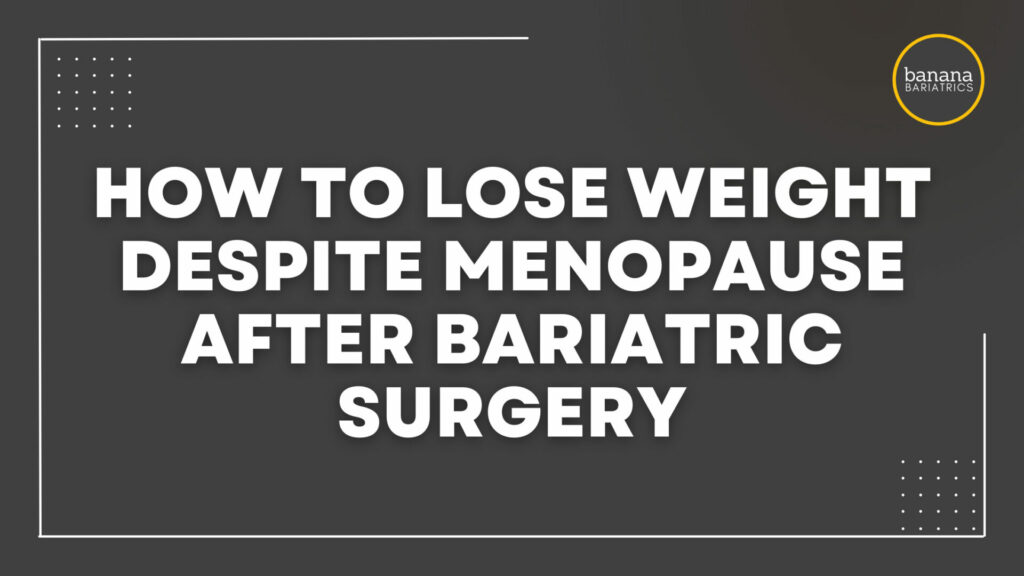
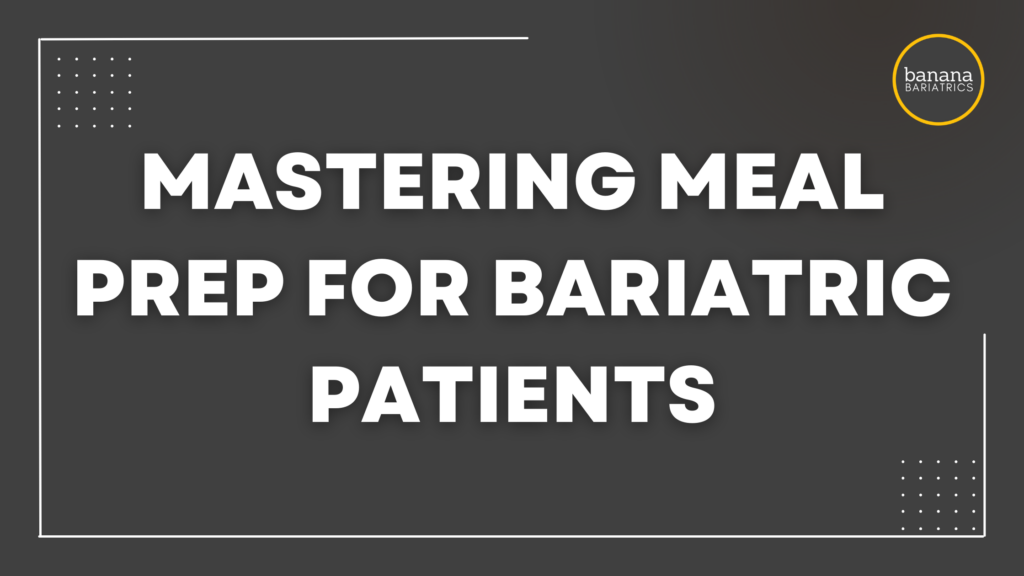
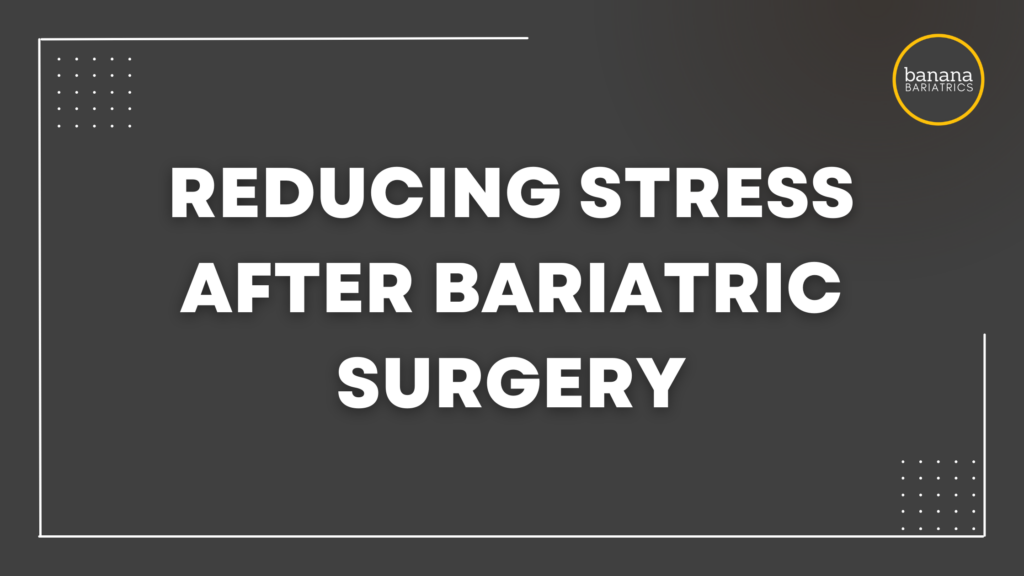
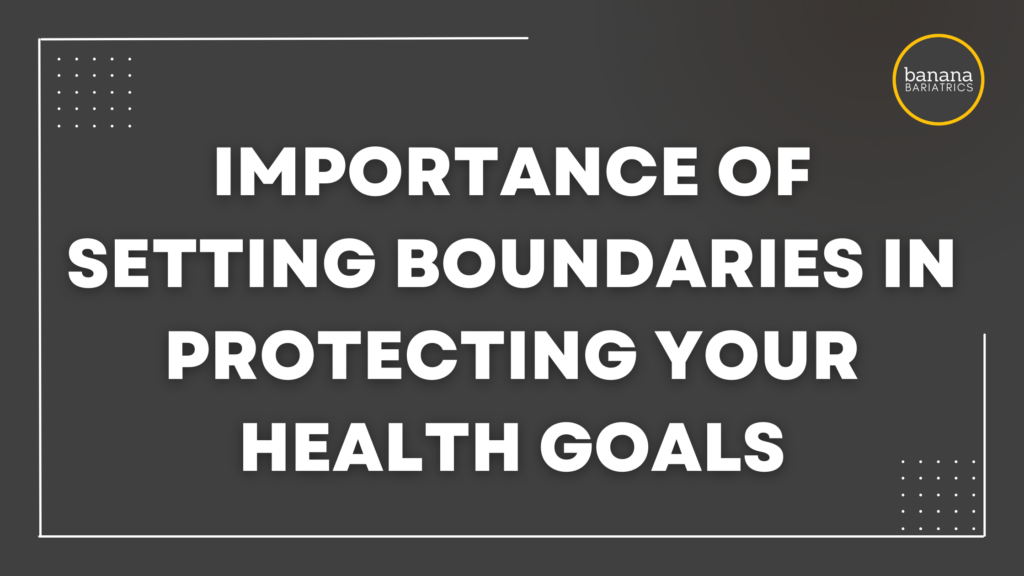
Responses